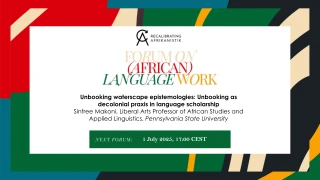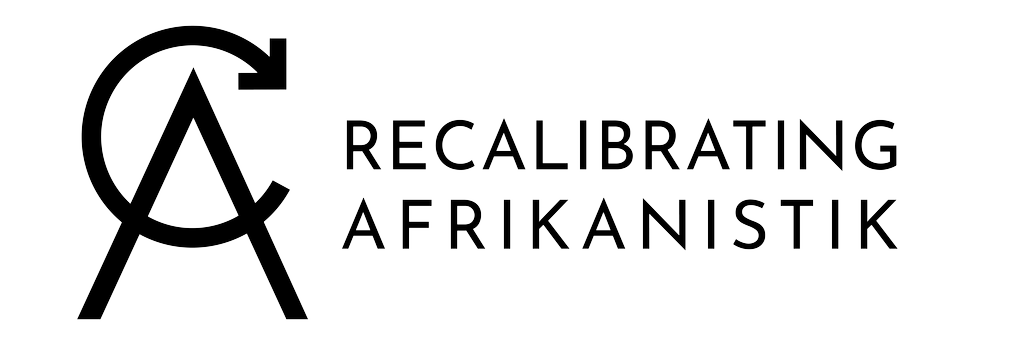RecAf Forum - Unbooking waterscape epistemologies: Unbooking as decolonial praxis in language scholarship

In this session of the RecAf Forum on Language Work, Sinfree Makoni, Liberal Arts Professor of African Studies and Applied Linguistics at Pennsylvania State University, will present on "Unbooking waterscape epistemologies: Unbooking as decolonial praxis in language scholarship".
Unbooking projects present alternatives for what academic publishing and knowledge dissemination look like by centering knowledge from the Global South/s and Southern epistemologies. Such knowledge includes waterscape epistemologies in multimodal formats. Waterscape epistemologies can be presented orally and translingually as well as in languages other than English and in other scripts. In waterscape epistemologies and decolonial scholarship we are seeking to advocate that there are ‘multiple’ and ‘diverse’ ways of being, and ‘waves of knowing’. Ideas such as language or water or indeed race, or gender are not pre-given, but we need to account for their social and historical development as ideas which can vary not only because of the physical aspects of the sea and land but also due to cultural historical and ideological orientations to water. For example, the Atlantic is the hidden graveyard of countless Black lives and bodies. Waterscape epistemologies enable us to think beyond critiques of commodification, capitalism, or colonialism. We focus on water because water is not out there; rather, it is in us, plants and creatures and our planet are largely water. Thinking about water is a matter of waterscape epistemologies (or hydrologics) which question the separability of humans from other creatures and enables us to challenge scholarship which separates humans from other earth beings and is grounded in land. Concerns about ownership of water (hydrocommons) can help us reconsider what it means to have ownership over linguistic resources. Water compels us to realize that there are diverse ways of being which are not fully acknowledged even in decolonial language scholarship which following linguistics’ quest to be a science has reduced language to an equivalent of H20, a clean, homogeneous, product available to all. We explore how “unbooking” can embrace divergent and emergent viewpoints that are characteristic of thinking with and listening to water. In this regard, waterscape epistemologies embrace consensus-based decision making through ongoing discussions. Modern waters (i.e the hydro-social meaning of water), like modern books and languages, are inventions which have emerged under specific cultural and political contexts.
Time: 1 July 2025, 17:00 CEST
The RecAf Forum takes place online via Zoom. To join, use the following credentials or click the link below:
Meeting ID: 616 6578 0875
Passcode: 482891
